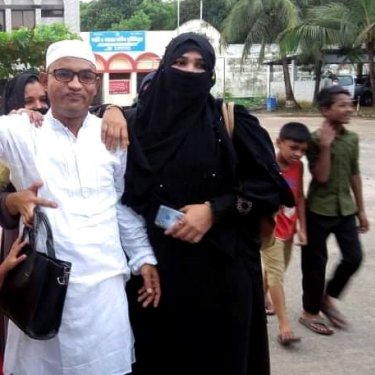Bangladeshi journalist tortured by police, held for nearly a year

Reporters Without Borders (RSF) is spotlighting the horrific story, one that remained unreported until very recently, of a journalist who was tortured and arbitrarily jailed for nearly a year for investigating the widespread corruption in and around the city of Cox’s Bazar in the far southeast of Bangladesh.
The editor of the Cox’s Bazar Bani daily and the Janatar Bani news website, Faridul Mostafa was finally released on bail from Cox’s Bazar prison on 27 August after being held for 11 months and five days for covering local government corruption linked to the region’s drug trafficking with neighbouring Myanmar.
In stories published in May and June 2019, Faridul focused on cases of extortion and death threats in connection with alleged links between local drug cartels and Pradeep Kumar Das, the Officer-in-Charge (OC) at the police station in Teknaf, a border town 75 km south of Cox’s Bazar.
After Faridul himself began being the target of threats, he wrote letters to the prime minister, home affairs minister and police inspector general in the Bangladeshi capital, Dhaka, on 28 June 2019 requesting protection against OC Pradeep.
Brutal torture
Two days later, OC Pradeep filed three complaints accusing Faridul of extortion. The alarmed Faridul fled to Dhaka but he was located by means of his mobile phone signal and, after OC Pradeep’s thugs arrested him there on 19 September 2019, he was brought all the way back to the police station in Teknaf. This is when the real nightmare began.
“He was brutally tortured in police custody before being brought before a court in Cox’s Bazar three days later,” his wife Hasina Akter, told RSF. She said his hands and legs were broken and the nails of his fingers and toes were pulled out with pliers by Pradeep himself. His eyesight has been badly affected by the red chili powder that was rubbed in his eyes, and he was forced to drink sewage water, which caused severe diarrhoea.
Before bringing Faridul before a judge, OC Pradeep staged a raid on his home on 21 September 2019, in which his men planted two illegal firearms, 400 yaba pills (a popular local drug) and bottles of alcohol, and then pretended to discover them. This “evidence” and the three other charges brought by Pradeep sufficed to get Faridul jailed without any hope of bail.
All-powerful police officer
His wife told RSF that the family did not dare to contest the charges in court or report this scandal to the press for fear of reprisals by the all-powerful police officer. It was only Pradeep’s arrest early last month for the murder of a retired army officer that finally loosened tongues and revived Faridul’s hopes.
On 17 August, the Bangladesh high court ordered his release on bail. He was released 10 days later but he remains charged on a total of six counts, including illegal possession of drugs, alcohol and firearms, which could potentially result in his being imprisoned again.
“We urge Bangladesh’s highest judicial authorities to immediately dismiss the spurious charges against Faridul Mostafa, to assume responsibility for his medical costs, and to issue orders for him to be given effective protection,” said Daniel Bastard, the head of RSF’s Asia-Pacific desk. “His horrific ordeal calls for deep reforms in the police and judicial system so that journalists can freely investigate corruption cases without fearing reprisals. The credibility of the rule of law in Bangladesh is at stake.”
Continuing fears
On his release from prison, Faridul told waiting journalists and an RSF representative that he was still very concerned for his safety. “My security could still be in danger because the police officer’s colleagues and underworld gangs feel threatened,” he said.
As RSF reported at the time, local newspaper reporter Shariful Alam Chowdhury was nearly beaten to death by thugs acting on the orders of a local official in Muradnagar, on the outskirts of Cumilla, 100 km east of Dhaka, in July.
In June, RSF and four other NGOs wrote to Bangladeshi Prime Minister Sheikh Hasina asking her to take concrete action to guarantee press freedom in the face of an alarming surge in physical attacks against reporters investigating corruption. According to RSF’s tally, at least 15 journalists have been subjected to serious violence in Bangladesh since a lockdown was imposed in late March in response to the coronavirus crisis.
Bangladesh is ranked 150th out of 180 countries in RSF's 2020 World Press Freedom Index.



